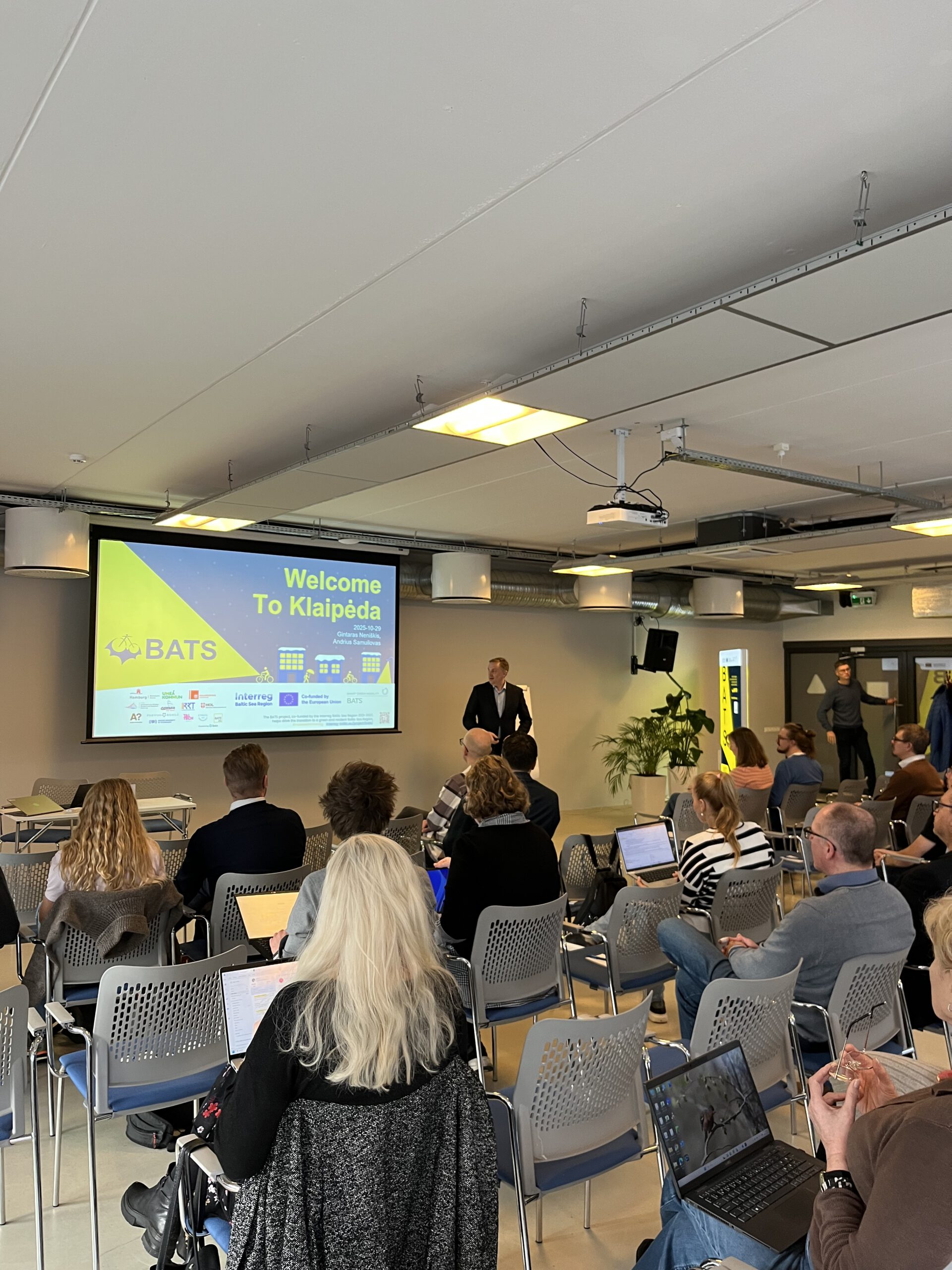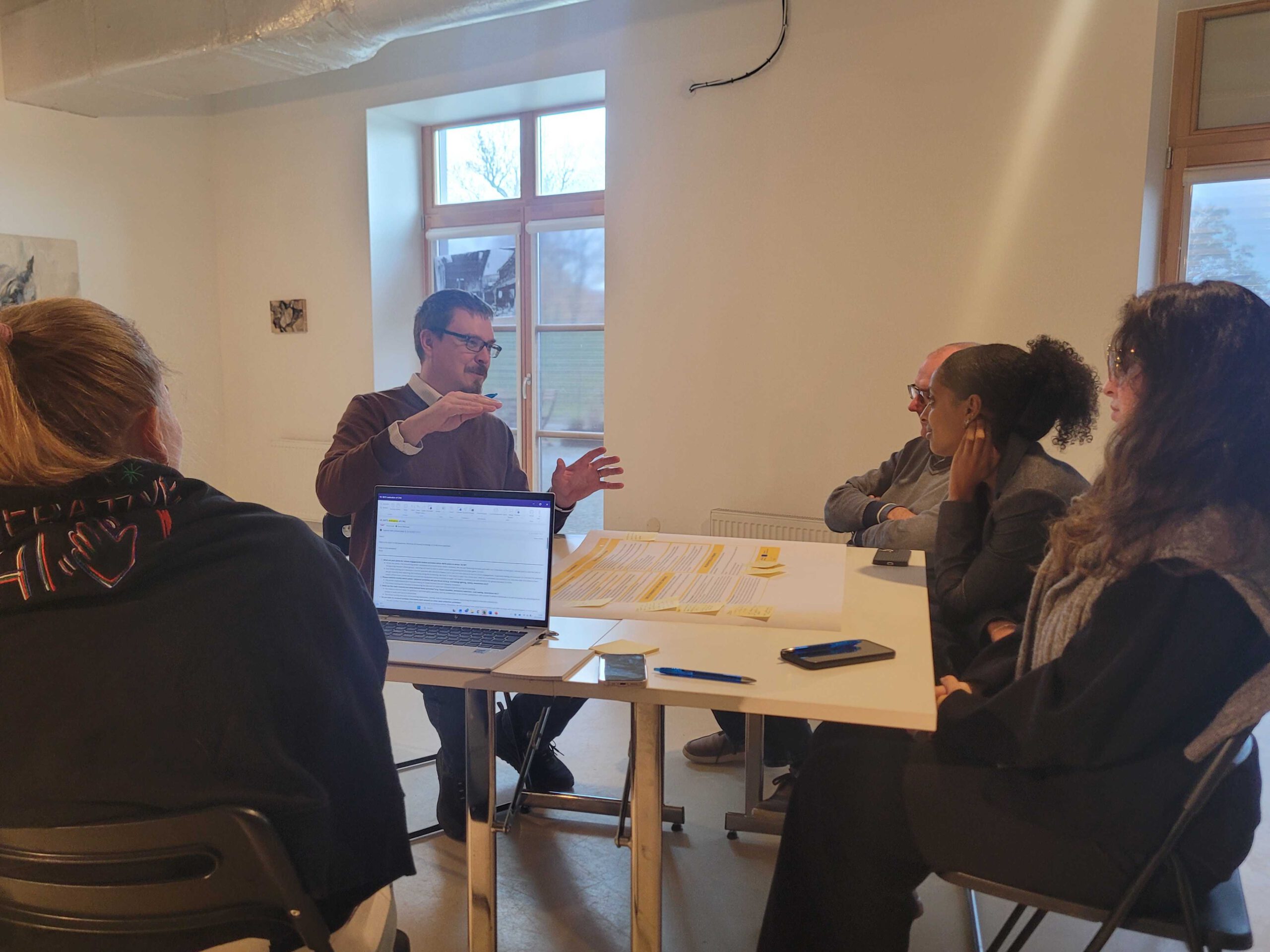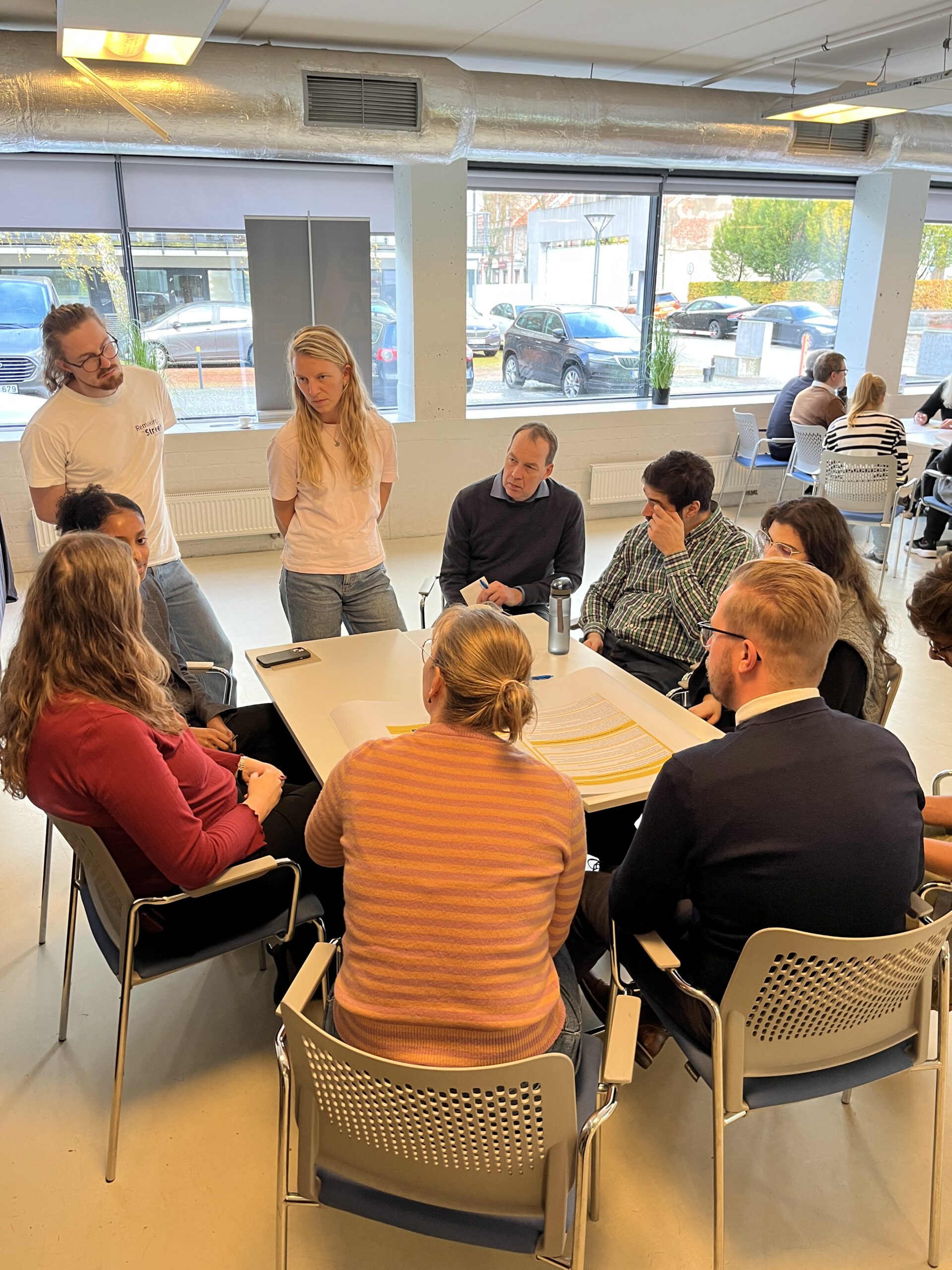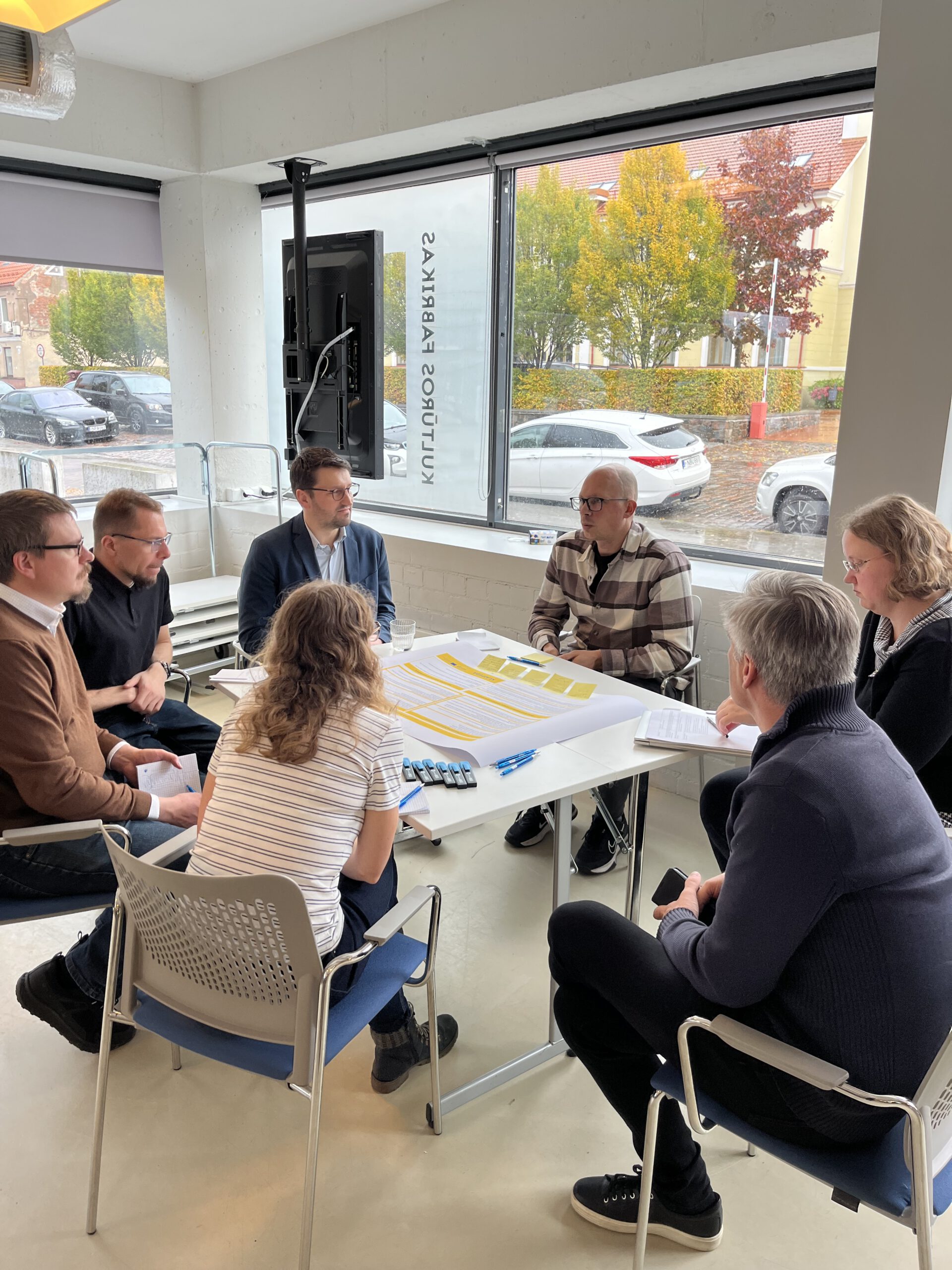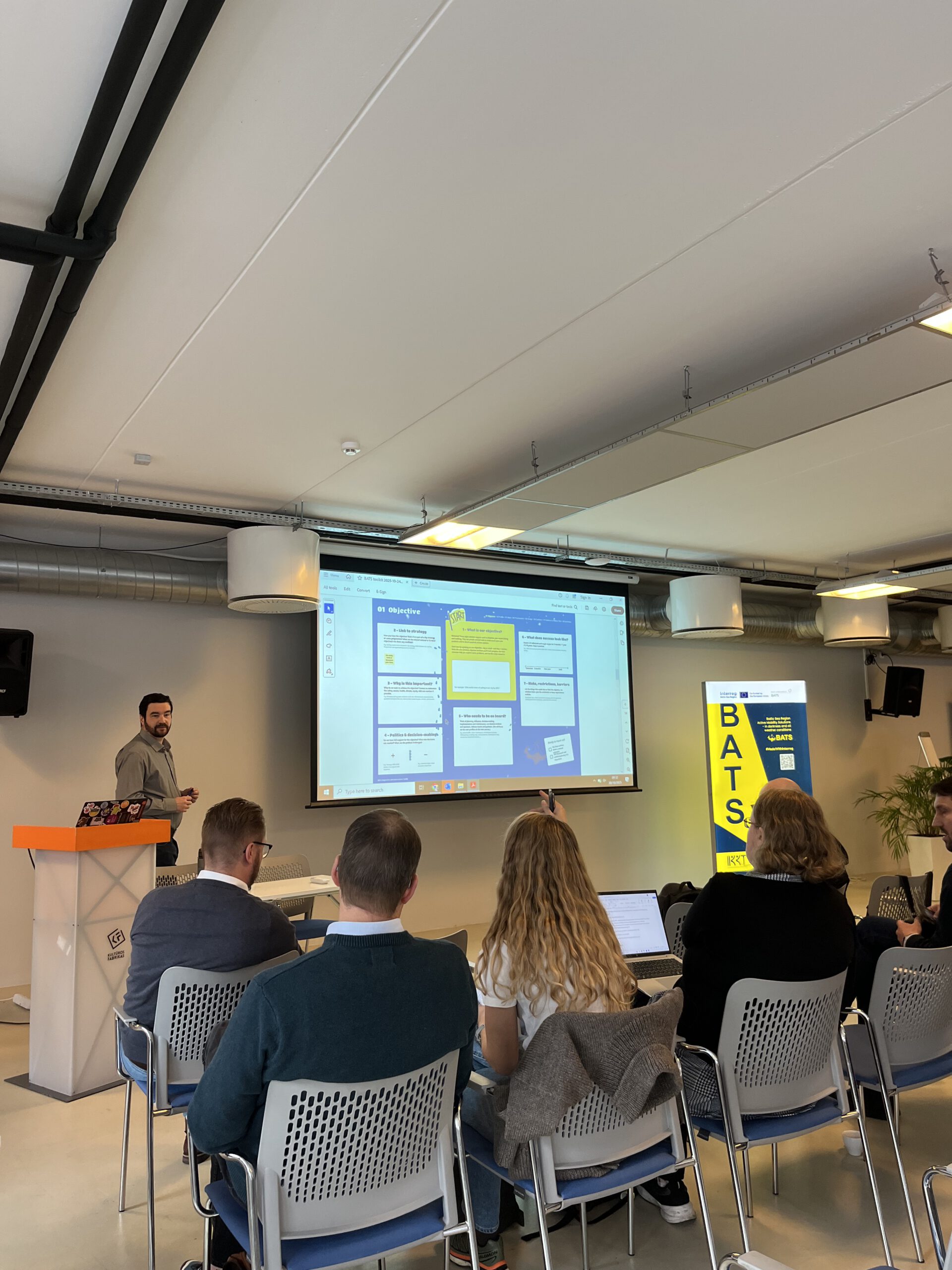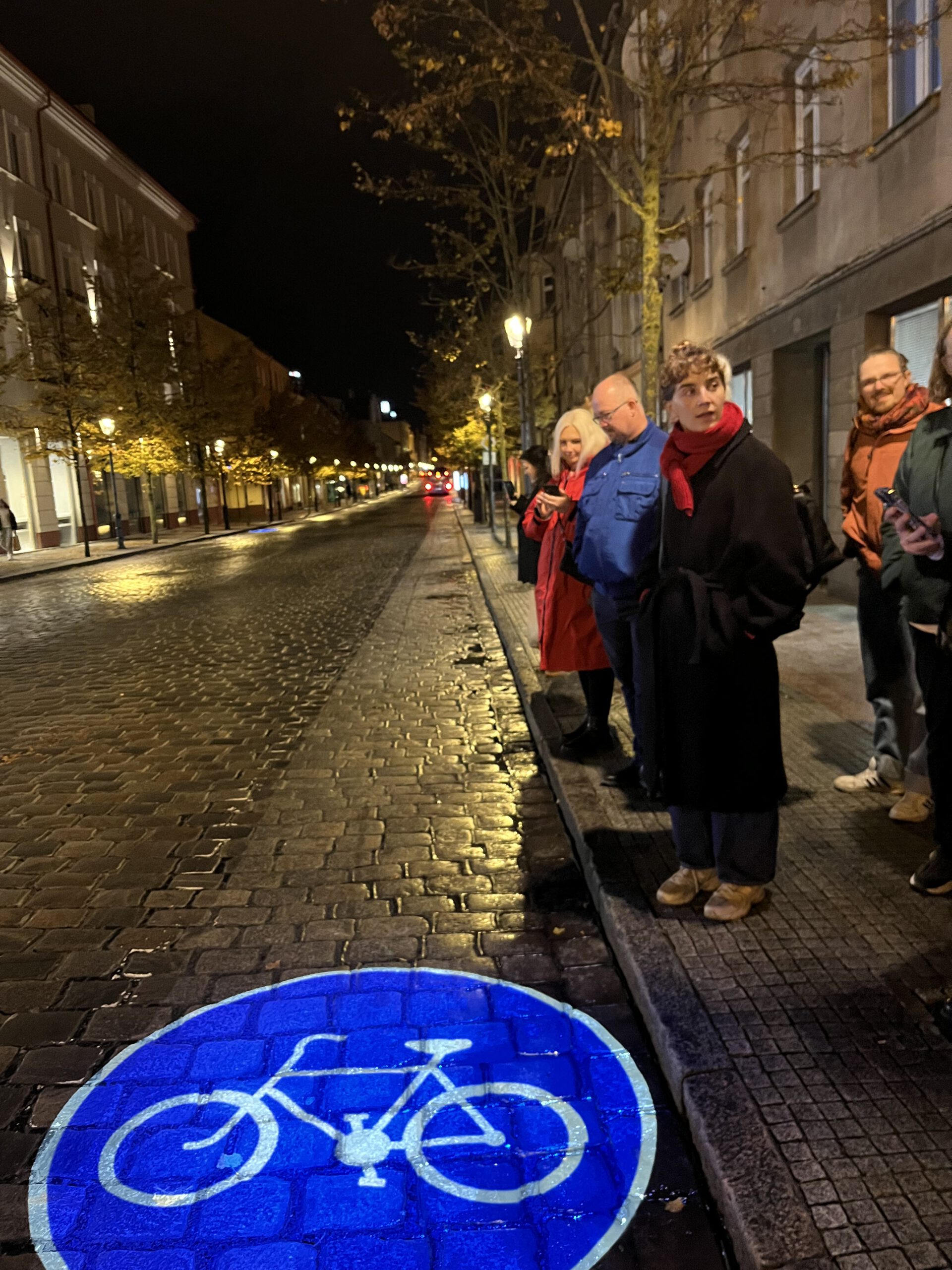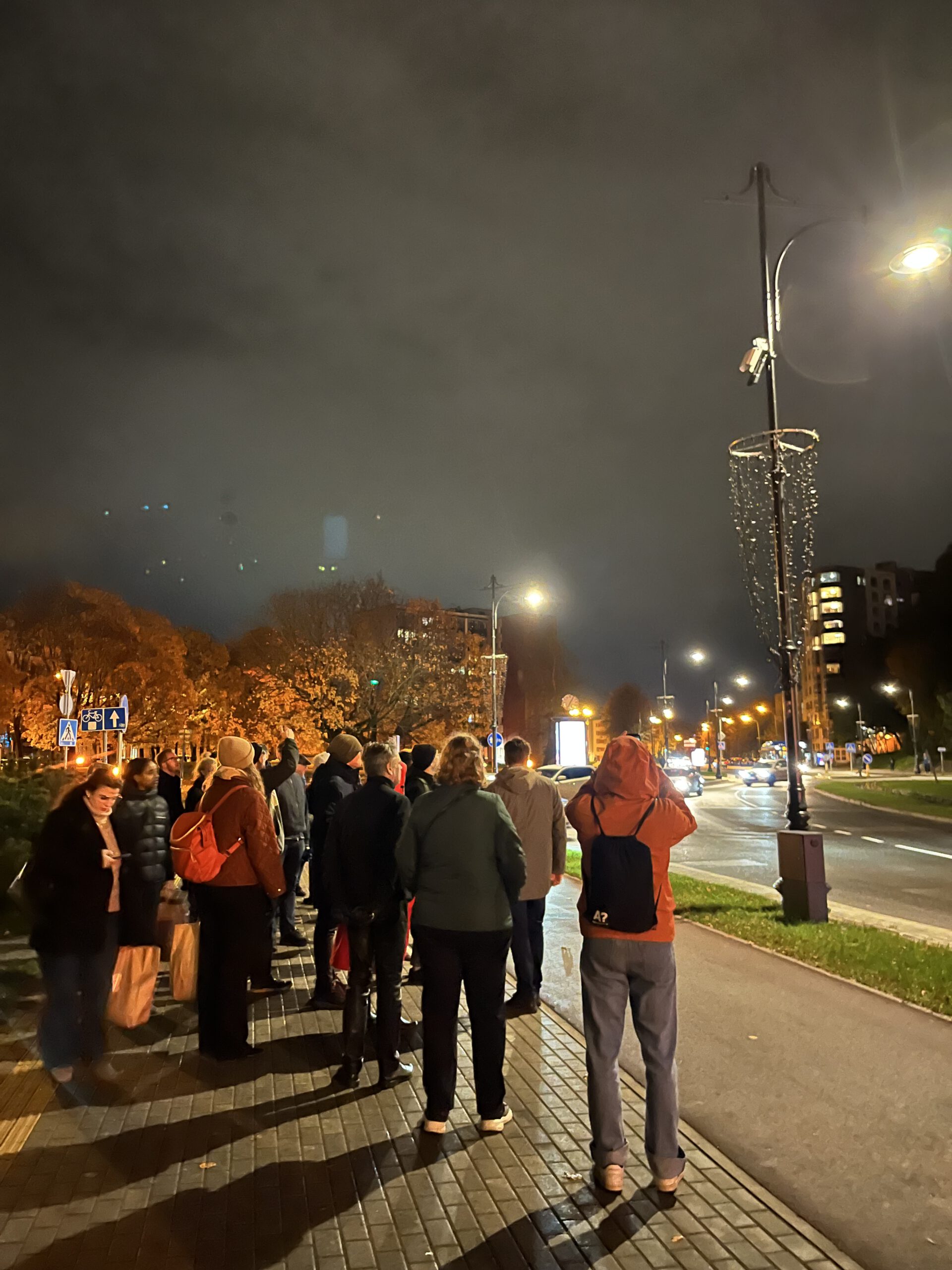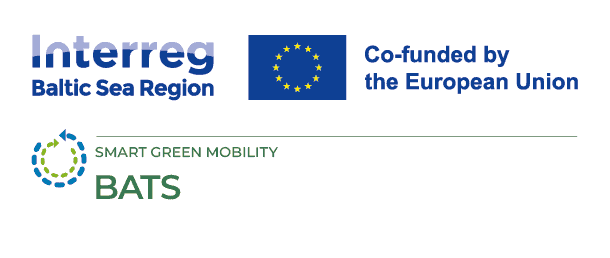
BATS Visits Klaipeda to Plan a Final Winter of Active Mobility Actions
06 November 2025
Written by Dennis Martinez and Harry Dobbs
From hands-on cycling infrastructure walkthroughs to intensive world café sessions and an (almost) final reveal of the BATS YRAM Toolkit, the meeting provided fresh momentum for partners entering the next phase of the project.
Exploring Klaipeda’s Year-Round Active Mobility Efforts
The meeting began with an evening walk through Klaipeda’s historic old town, an opportunity for partners to see firsthand how the city is progressing year-round active mobility solutions.
Our hosts from the Klaipeda Public Transport Authority showcased a variety of infrastructural and operational innovations under their management. Highlights of the tour included:
- Neighbourhood-based community bike storage facilities, supported by a clever automated access system that ensures only nearby residents can use them – an efficient and scalable approach to secure parking.
- Light projectors that beam cycling path symbols onto Old Town cobblestones, a creative response to markings that would otherwise fade quickly or be covered by leaves and snow.
- Experimental protective elements installed in strategic locations to curb unsafe motorised traffic behaviour while maintaining a clutter-free cycling network.
- A candid look at the persistent spatial challenges between cycling, walking, and motorised traffic, which Klaipeda continues to address with incremental and innovative interventions.
This hands-on start allowed partners to catch up in person and set the tone for two days of productive planning and exchange.
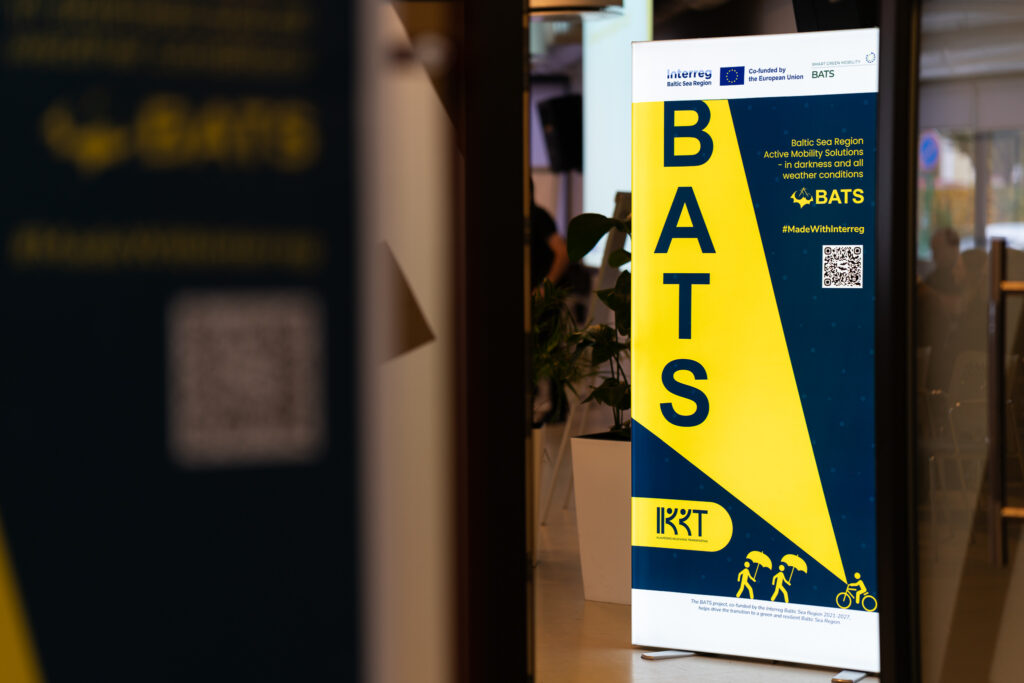
From Challenges to Solutions: A Collaborative Day of Planning
The second morning of the meeting opened with a warm and insightful welcome from Gintarė Neniškis (Director) and Andrius Samuilovas (Deputy Director) of the Klaipeda PT Authority, who emphasised the city’s commitment to advancing year-round active mobility.
Partners then moved into an extended and highly productive world café session focused on the upcoming winter experiments. Each city presented the challenges they are still navigating—from operational hurdles to behavioural questions. Meanwhile, knowledge partners provided targeted guidance on how BATS tools, methods, and research can support their implementations. Cities will now refine their winter testing plans based on this valuable input.
A second core activity centred on imagining the structure of the BATS Transfer Workshop, which will support replication of project outcomes beyond the partnership. Gate21, the project’s replication partner from Denmark, collected ideas to shape a final programme launching in 2026.
After a full day of ideation and planning, partners enjoyed an informal dinner together at Pepper Grey Town, continuing conversations in a more relaxed setting.
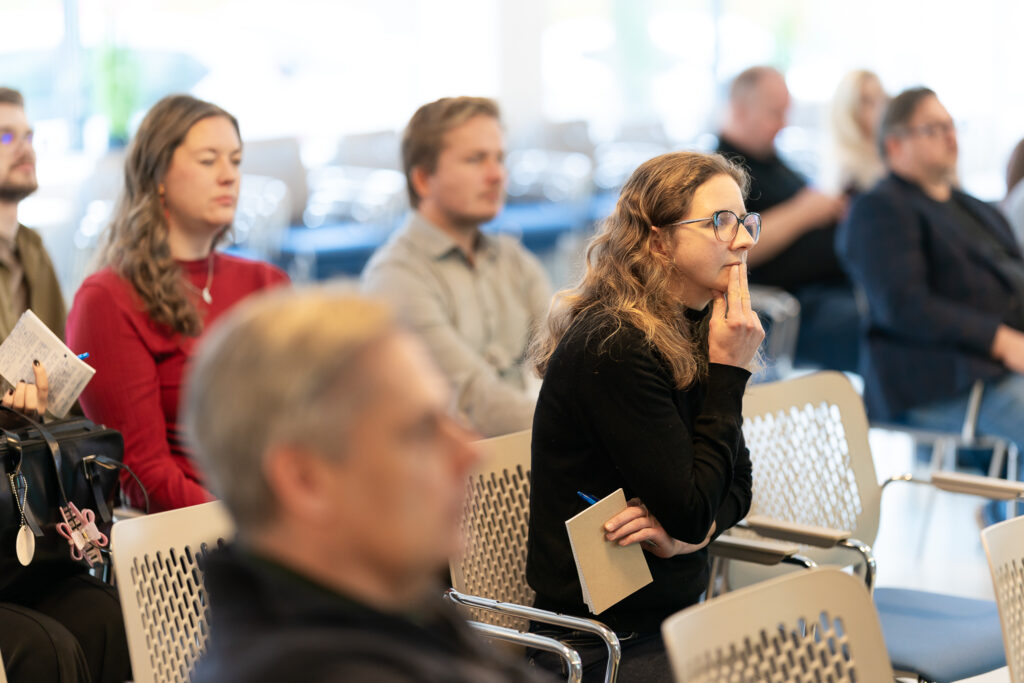
Sharpening the Tools: YRAM Toolkit and Thematic Exchanges
The final day of the meeting focused on forward-looking project outputs and collaborations.
Miloš Mladenović from Aalto University presented a near-final version of the Year-Round Active Mobility (YRAM) Toolkit – one of the flagship outcomes of the BATS project. Designed to help planners navigate the complexities of all-season cycling and walking, the toolkit will include:
- A 30-45 minute solo sprint,
-
A 2 hour team workshop format,
-
A full 4-5 session deep-dive format.
These formats give cities the flexibility to integrate year-round active mobility thinking into planning processes regardless of time and resource constraints. The final version will be released in April 2026. Stay tuned!
Partners were also pleased to welcome Dr. Kristina Gauce, who delivered an insightful presentation on the cornerstones of planning for active mobility, providing fresh perspectives as cities prepare for their winter pilots.
To close the meeting, partners discussed the upcoming Thematic Exchanges, where groups of cities will jointly explore topics shaped by their specific interests. One example: Gdynia, Hamburg, and Klaipeda will collaborate on improving traffic control to support pedestrians and cyclists under varying weather conditions, experimenting with ideas such as dynamic light phases and cycling green waves.
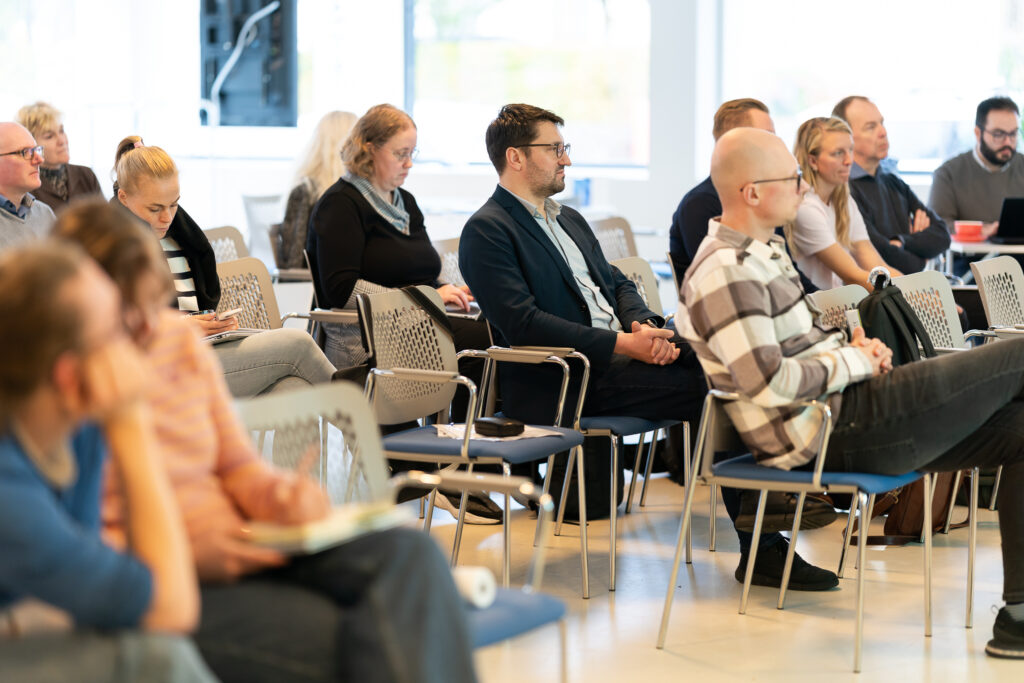
Looking Ahead
With new insights, refined plans, and strengthened collaboration, the partnership leaves Klaipeda energised for a winter full of hands-on testing and learning.
The next BATS partner meeting will take place in Kalundborg, Denmark, in spring 2026.
In the meantime, we look forward to the upcoming BATS Webinar on Winter Maintenance for Active Mobility – taking place on 28 November 2025.






